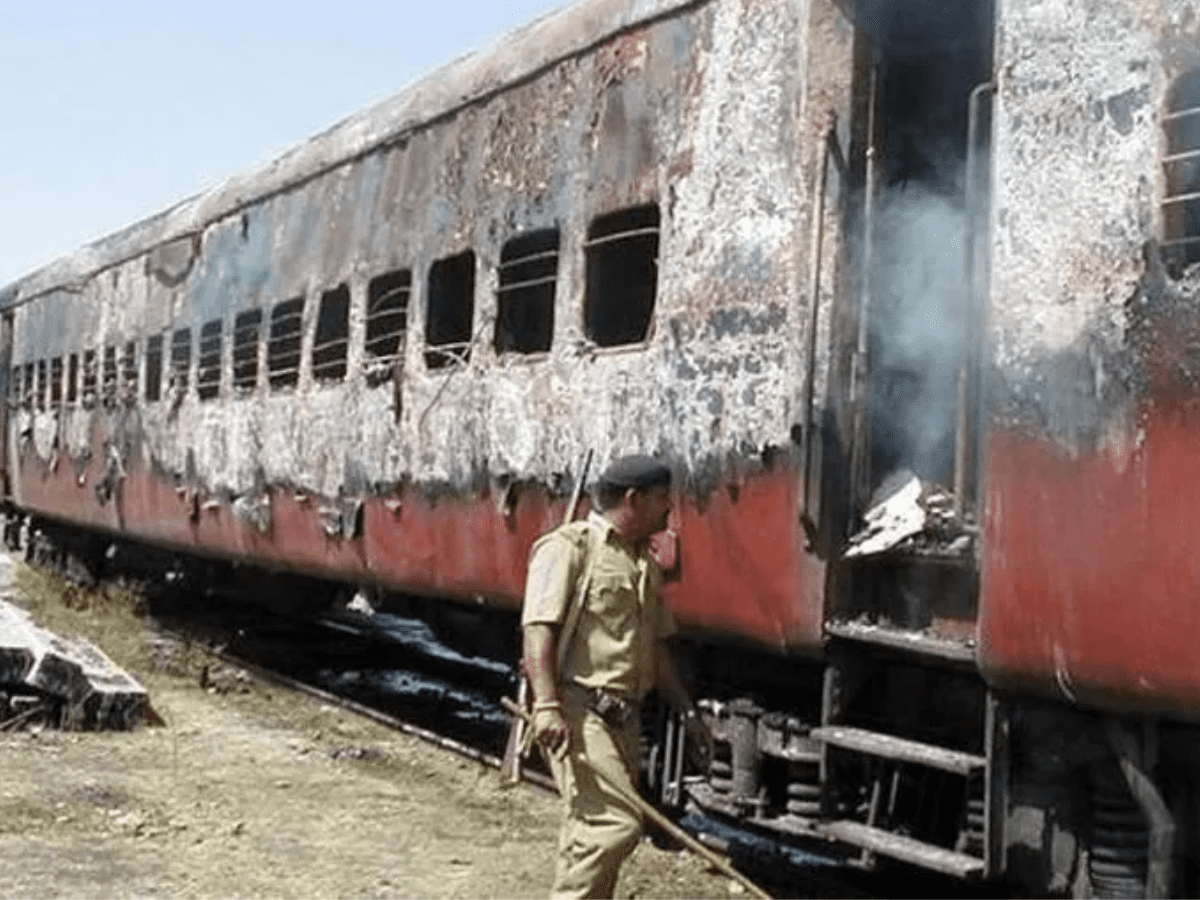
New Delhi: The Gujarat government has opposed in the Supreme Court the bail pleas of some convicts of the 2002 Godhra train burning case, saying they were not mere stone-pelters and their acts prevented people from escaping the burning coach.
On February 27, 2002, 59 people were killed when the S-6 coach of Sabarmati Express was burnt at Godhra, triggering the riots in the state.
The matter came up for hearing on Friday before a bench of Chief Justice D Y Chandrachud and Justice P S Narasimha.
The apex court, while asking the state to specify the individual roles of the convicts, observed that bail pleas of those who were accused of stone pelting could be considered as they have already spent 17-18 years in jail.
Solicitor General Tushar Mehta, appearing for the state of Gujarat, said these convicts threw stones on the train which prevented people from escaping the burning coach.
“It is not a case of mere stone pelting,” he told the bench.
Mehta told the bench that appeals filed by the convicts in the top court against the October 2017 verdict of the Gujarat High Court, which had upheld their conviction in the case, could be listed for hearing.
He told the bench that he would examine the individual roles of these convicts and apprise the bench about it.
The bench has posted the matter for further hearing on December 15.
In its October 2017 judgement, the high court had commuted to life imprisonment the death sentence awarded to 11 convicts in the Godhra train burning case.
It had upheld the life sentence awarded to 20 other convicts in the case.
On November 11, the apex court had extended the period of interim bail granted to one of the convicts until March 31, 2023.
It had noted that on May 13, the top court had granted him interim bail for six months on the ground that his wife was suffering from terminal stage cancer and his daughters were differently-abled.
In its November 11 order, the bench had noted that having due regard to the situation which continues to subsist, “we extend the period of interim bail until March 31, 2023 on the same terms and conditions”.
(Except for the headline, this story has not been edited by Siasat staff and is published from a syndicated feed.)
